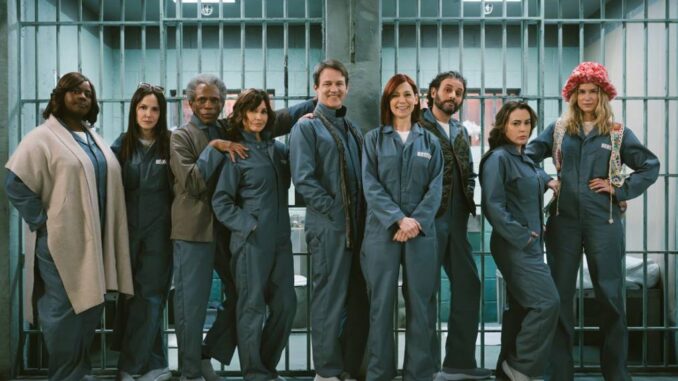
Finding Solid Ground: Elsbeth's Season 2 Finale as a Necessary Reset
Elsbeth Tascioni, the endearing and deceptively brilliant lawyer with a penchant for quirky observations, has become a welcome presence on television screens. However, the journey of "Elsbeth" in its second season was somewhat uneven, grappling with tonal inconsistencies and a drifting focus. The season finale, thankfully, serves as an important and welcome reset, not just for the show's narrative direction but also for the character of Elsbeth herself, grounding her in a renewed purpose and bolstering the series' future potential.
One of the key achievements of the finale is its return to the core essence of what makes "Elsbeth" so appealing: its clever blend of procedural crime drama and whimsical character study. Early episodes of the season felt like they were struggling to find a balance, often relegating Elsbeth's eccentricities to mere comedic relief, sidelining the analytical brilliance that underpinned her seemingly scattered observations. The finale, however, consciously elevates Elsbeth's unique perspective, allowing her to be both delightfully quirky and genuinely insightful. The case itself, while engaging, becomes secondary to the process of Elsbeth unraveling it, allowing the audience to once again appreciate the intricate workings of her mind and the surprisingly effective methods she employs.
Furthermore, the finale addresses a recurring issue throughout the season: Elsbeth's relationships with her colleagues, particularly Kaya Blanke and Captain Wagner. While the trio undoubtedly possesses chemistry, their dynamic often felt strained and predictable. The finale subtly shifts this, offering glimpses of genuine camaraderie and mutual respect that felt lacking in previous episodes. It highlights Kaya's growing confidence and ability to learn from Elsbeth's unconventional methods, moving beyond the initial skepticism and frustration. Wagner, too, exhibits a renewed appreciation for Elsbeth's unique contribution, acknowledging her value beyond just solving cases. This recalibration of the relationships allows for a more nuanced and believable dynamic, promising richer and more engaging interactions in future seasons.
Importantly, the finale doesn't just reset the show's narrative trajectory; it also provides a much-needed anchor for Elsbeth's character development. Throughout the season, Elsbeth felt somewhat adrift, her motivations less clearly defined than in the previous season. The finale, through subtle dialogue and character interactions, reminds us of Elsbeth's fundamental drive: a genuine desire to seek justice and protect the innocent. This return to her core values provides a sense of purpose and direction, making her actions feel more meaningful and resonant. It's a crucial reminder that behind the charming eccentricity lies a sharp intellect and a deep-seated empathy, qualities that make Elsbeth Tascioni such a compelling protagonist.
Ultimately, the Season 2 finale of "Elsbeth" is more than just a satisfying conclusion to a single case. It's a conscious effort to realign the show with its initial strengths, refocusing on the unique dynamic between procedural elements and character development. By grounding Elsbeth in her core values and recalibrating the relationships with her colleagues, the finale provides a solid foundation for future seasons. It signals a renewed commitment to the clever, whimsical, and ultimately insightful storytelling that made "Elsbeth" such a refreshing addition to the television landscape in the first place. With this reset, the show has the potential to not only entertain but also to offer a uniquely optimistic and engaging perspective on the world of law enforcement, guided by the brilliantly unconventional mind of Elsbeth Tascioni.
